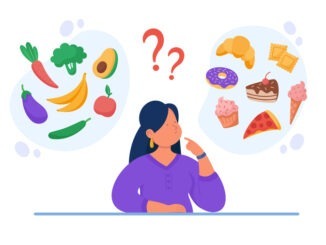
We all know giving back is a positive thing to do, but what impact can volunteering have on our wellbeing? Kat Nicholls discusses
CREDIT: This is an edited version of an article that originally appeared on Happiful
Volunteering had always been one of those things at the back of Kat Nicholls’ mind that she’d get around to doing ‘one day’. Along came the pandemic when free time started flowing and the need for volunteers reached an all time-high.
She’s now been volunteering on a weekly basis for Beat, The UK’s eating disorder charity, for nearly three years and she says she doesn’t plan on stopping any time soon. The main reason she does it? To support those in need. Like most volunteers, Nicholls does it to help others, to give back and to support a cause she cares about.
Some volunteers have a personal connection to the organisation or cause they volunteer for, others simply choose what feels right or needed. She always knew she was going to get a sense of satisfaction from volunteering, but what she didn’t anticipate is how much is would help her wellbeing.
Here are just some of the ways volunteering can benefit us.
It offers a sense of purpose
As humans, we often seek out meaning and purpose in our lives. Some find it through the work that we do or the relationships we cultivate. Something Nicholls’ loves about volunteering is that it offers a sense of purpose outside of all of that. It adds a new dimension and may be perfect for those craving purpose but not finding it in their career.
There are many different paths to fulfilment, and we owe it to ourselves to explore every one.
It allows you to use your experience and skills for good
In the volunteering she did, she used her lived experience of having (and recovering from) an eating disorder. Something so painful and dark has now been turned into something useful. She can take the lessons learnt and the hope found in recovery and share them with others.
You may have a different experience that can help others. Or, perhaps you’ve built up certain skills in your life that are invaluable to certain people. We all have something to offer, whether it’s a lived experience or the ability to truly listen.
It promotes connection
When you become a volunteer, you typically join a community of volunteers. This can spark some incredible connections as you meet people with shared experiences and interests.
As Nicholls’ volunteering role is remote, she didn’t think she would experience that connection. Whether through video calls, online training sessions or even in-person opportunities, she’s had the chance to connect with fellow volunteers and Beat staff alike.
It supports generativity
Generativity is all about how we leave our mark on the world in the time we’re here. For some this involves leaving a legacy through family, for others it’s through the work they do or the art they create. Volunteering can add to this generativity pot, as we use our time to impact others in a positive and sometimes life-altering way.
It’s good for your mental health
There have been many studies into the benefits of volunteering and according to a study published in the Journal of Happiness Studies, those who volunteer at least once a month report better mental health than those who don’t volunteer (or those who volunteer less frequently).
There are many factors of volunteering that contribute to better mental health, including a general feeling of happiness when helping others, gaining perspective and that all-important connection.



Be the first to comment